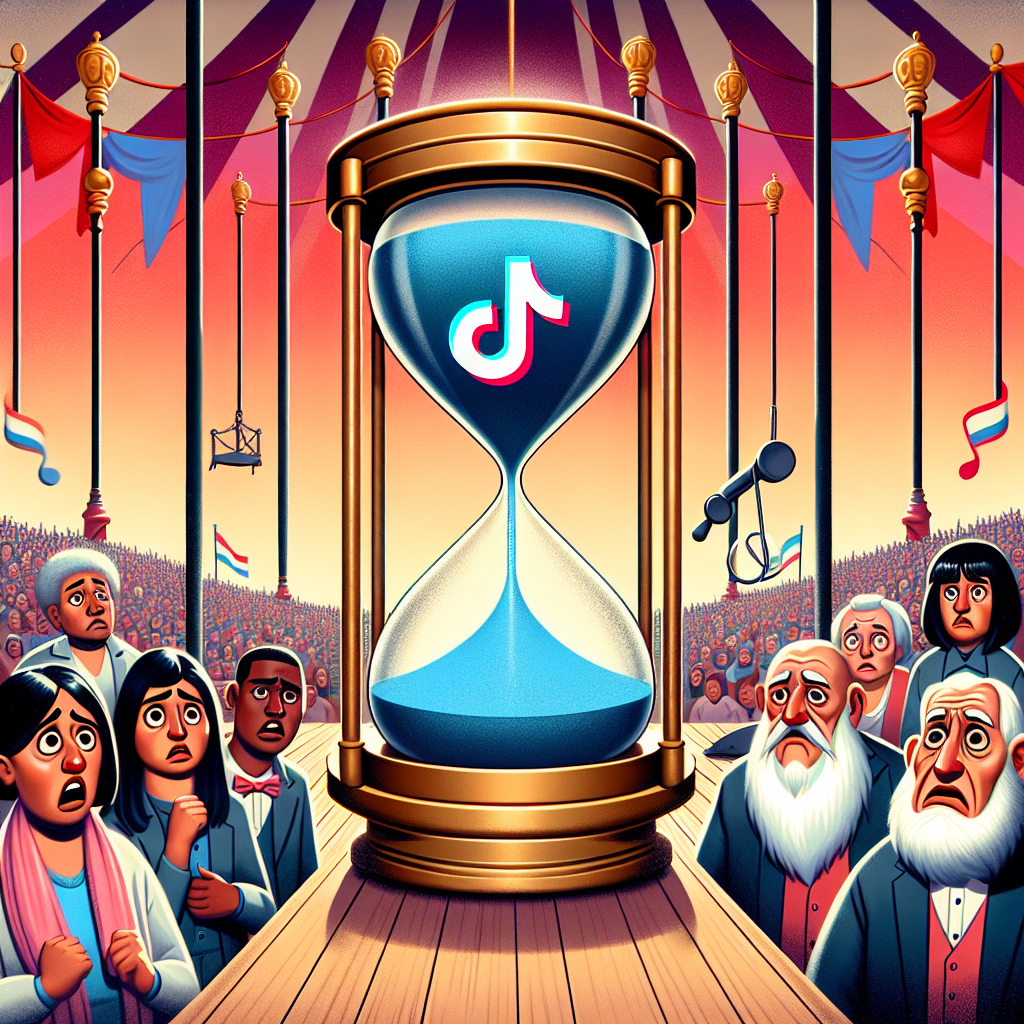Trump Extends TikTok Ban Deadline For A Third Time

Alright, let’s cut through the noise and get straight to the point: the whole TikTok ban saga feels less like a matter of national security and more like a political reality show with no end in sight. Trump pushing the ban deadline not once, but three times? That’s not strategy; that’s procrastination dressed up as strong leadership.
Look, there’s no denying TikTok’s popularity — it’s a digital juggernaut, especially with the younger crowd. But that’s exactly why it’s got so many folks sweating bullets in Washington. The worry is foreign influence, specifically from China, and the potential for data to end up where it shouldn’t. Fair concern? Maybe. But slapping an on-again, off-again ban on the app with recurring extensions doesn’t exactly inspire confidence that the decision is grounded in solid reasoning rather than political posturing.
Here’s the rub: if TikTok was truly a threat, wouldn’t a ban be rolled out swiftly and decisively? Instead, we get deadline after deadline, each pushed further down the road like a kid trying to avoid homework. It reeks of indecision or worse, playing to a base that loves tough talk but balks at actual follow-through. It’s like telling someone you’re gonna throw a punch, then pulling your fist back over and over again just for the show.
But there’s also the bigger picture — what does a TikTok ban actually solve? Sure, it signals a hard stance against China, but it doesn’t change the underlying issue of how interconnected and vulnerable modern tech ecosystems are. It’s a cat-and-mouse game with apps and data flows that can’t be stopped by deadlines and bans alone. If anything, it’s a sign that the approach is as outdated as a flip phone in 2024.
And let’s not overlook what the ban does to the business landscape. TikTok isn’t just some social media toy; it’s become a marketing giant, a platform for creators to make real money, and a place where trends — cultural, political, even commercial — take root and spread at lightning speed. You pull the rug out from under that, you’re not just banning an app, you’re disrupting livelihoods and the flow of new ideas. Tough talk about protecting America’s interests, but what about supporting American creativity and small business innovation? Apparently, those aren’t in the same conversation.
Then there’s the curious timing of these deadline shifts. Each extension comes around election cycles or political crunch times — hmmm, coincidence? Or maybe it’s a handy political football to keep voters fired up without risking actual fallout? Because let’s face it, when you’re wielding national security like a hammer, you’d better be sure you’re driving nails and not just pounding nails for the optics.
It’s easy to get caught up in the patriotic chest-thumping about “protecting data” and “fighting foreign interference,” but at some point, the point of all this noise has to become clear. Is the goal really to safeguard America’s digital borders? Or is it to score political points by conjuring fears around a popular app that millions use for entertainment and connection?
Me? I’m all for protecting national interests — makes sense, especially in an era when data is the new oil. But extend the ban deadline a third time and you’re not protecting anything; you’re just kicking the can down the road and dragging everyone along for the ride. And frankly, it’s a bit embarrassing to watch grown-ups in charge stumble over simple decisions like this, while everyone else is busy using the app or moving on.
At the end of the day, politics aside, consumers get caught in the middle of this back-and-forth drama. Folks just wanna enjoy their digital playground without wondering if the game's gonna get pulled out from under them every few months. The uncertainty breeds frustration and cynicism, not trust.
Maybe it’s time for a real conversation about what digital sovereignty means in the age of global apps, and less about who shouts the loudest on Twitter or on TV. Instead of just threatening to ban popular platforms, how about working on smarter regulations and real agreements that protect privacy without shutting down innovation? Because kicking the ban deadline down the line over and over? That’s just kicking the can while the digital marketplace evolves right past us.
And if there’s one thing I know, it’s this: people don’t respect hesitation dressed up like toughness. If you want to ban something, do it with a plan and conviction — not hold a tease like a semi-truck idling at a red light, revving but never moving forward. Otherwise, it just looks like a lot of noise and no action, and that ain’t a good look for anyone.

